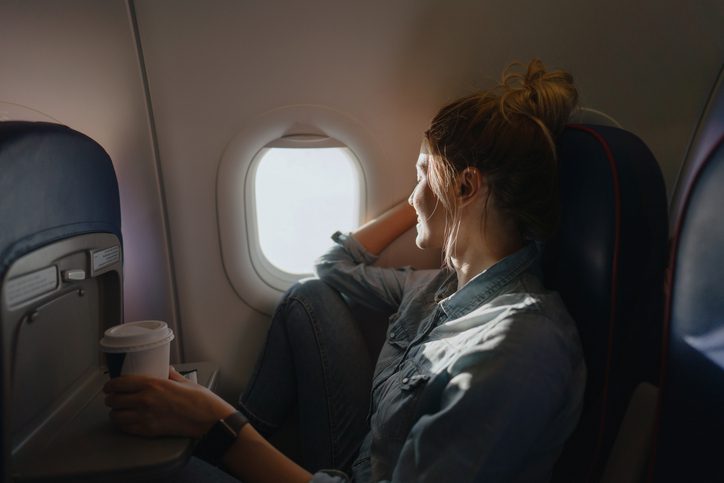While it might seem puzzling at first, there are several reasons why you might experience constipation after flying. Here are the factors that contribute to this phenomenon and the strategies to prevent or alleviate it.
1. Dehydration:
One of the most common reasons for post-flight constipation is dehydration. The low humidity levels in airplane cabins can lead to increased fluid loss through respiration and skin evaporation. Moreover, travellers often avoid drinking water to minimise the inconvenience of using airplane restrooms. Dehydration can slow down the movement of waste through the intestines, leading to constipation.
Solution: Stay hydrated before, during, and after your flight. Drink water regularly, and consider avoiding excessive amounts of caffeine and alcohol, as they can contribute to dehydration.
2. Dietary Changes:
When traveling, dietary routines may be disrupted. Different time zones, unfamiliar foods, and irregular meal schedules can all affect your digestive system. Additionally, airport and airplane meals may lack the fibre content necessary for regular bowel movements.
Solution: Plan your meals and snacks carefully. Opt for foods that are rich in fibre, such as fruits, vegetables, whole grains, and nuts. If possible, pack your own healthy snacks to ensure you have balanced options available.
3. Inactivity:
Sitting for prolonged periods during flights can lead to decreased physical activity. This lack of movement can slow down digestion and bowel motility.
Solution: During the flight, try to stand up, stretch, and walk around the cabin when it’s safe to do so. Engaging in simple leg and abdominal exercises while seated can also help stimulate blood flow and digestion.
4. Stress and Anxiety:
Traveling, especially by air, can be stressful or anxiety-inducing for some individuals. Stress and anxiety can affect the functioning of the digestive system and lead to constipation.
Solution: Practice relaxation techniques such as deep breathing, meditation, or listening to calming music. Engaging in activities that help reduce stress can positively impact your digestive health.
5. Change in Routine:
Travel disrupts your daily routine, including sleep patterns. The body’s internal clock, or circadian rhythm, influences bowel movements, and changes to this rhythm can affect regularity.
Solution: Try to adjust to the new time zone as quickly as possible. Getting sufficient rest and adhering to local mealtimes can help normalise your body’s internal clock.
Constipation after flying can result from a combination of factors, including dehydration, dietary changes, inactivity, stress, and alterations to your routine. By understanding these causes and taking proactive steps to mitigate them, you can make your post-flight experience more comfortable and avoid the discomfort of constipation. Remember that maintaining a balanced diet, staying hydrated, staying active, managing stress, and adapting to local time can all contribute to better digestive health during your travels.







